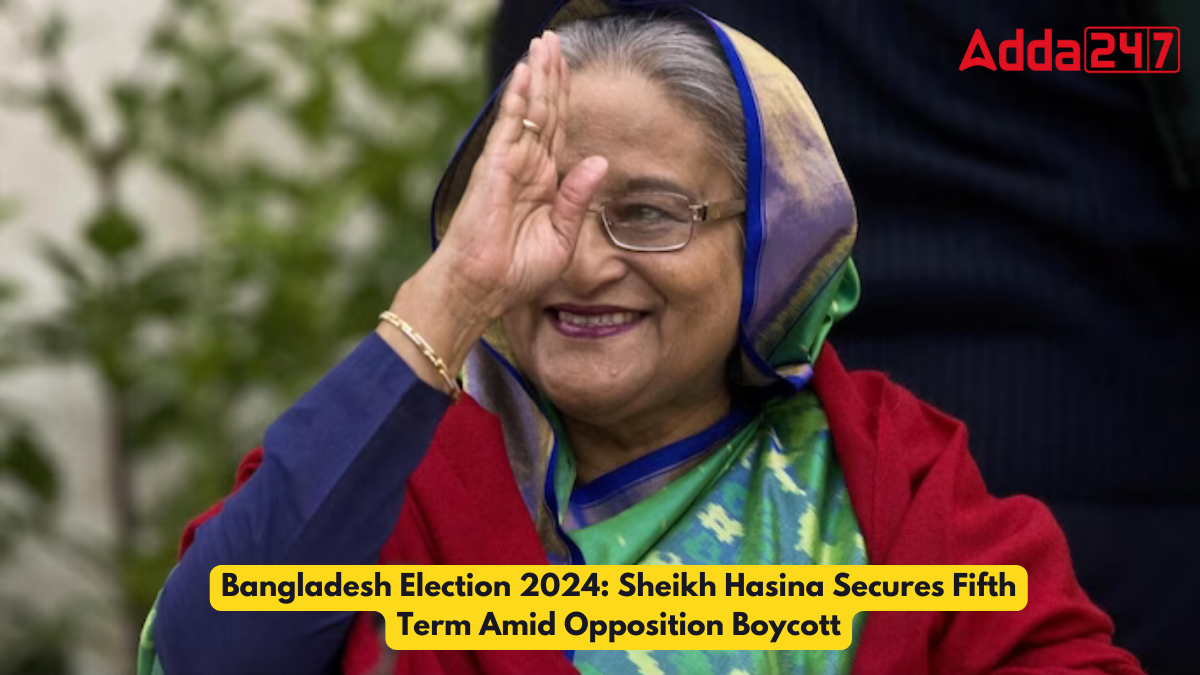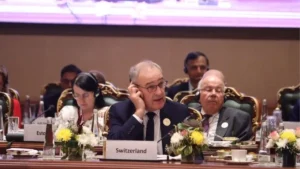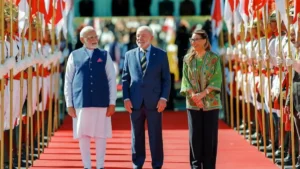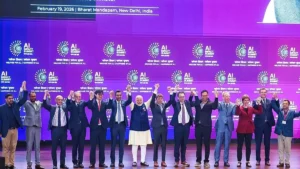Historic Victory for Sheikh Hasina and Awami League
In a momentous turn of events, Bangladesh’s Prime Minister Sheikh Hasina has been re-elected for a fifth term, marking a significant milestone in the country’s political landscape. The ruling Awami League, under Hasina’s leadership, has triumphed once again, securing more than half of the parliamentary seats. This victory reaffirms Sheikh Hasina’s position as the world’s longest-serving female head of government.
Election Boycott and Opposition’s Stance
The election was notably marred by the boycott of the Bangladesh Nationalist Party (BNP), led by the former Prime Minister Khaleda Zia, who is currently incarcerated. Labeling the BNP as a “terrorist organization,” Hasina’s government faced no significant challenge from this major opposition party.
The Economic Growth and Challenges Ahead
Under Sheikh Hasina’s rule, Bangladesh has experienced unprecedented economic growth, a stark contrast to the past struggles with poverty. However, her administration has faced accusations of human rights violations and a stringent crackdown on opposition, raising concerns about the country’s democratic health.
Election Results and Parliamentary Dynamics
According to the Election Commission and reports from various TV stations, the Awami League secured 216 seats out of 299 in the parliamentary election. Independent candidates achieved a notable success with 52 seats, while the Jatiya Party, another significant political force, won 11 seats. This diverse representation in parliament presents a challenge for establishing a cohesive opposition.
Low Voter Turnout and Scrutiny of Election Process
The election, held in 299 out of 300 seats due to the death of an independent candidate in one constituency, recorded the second-lowest voter turnout since the reinstatement of democracy in 1991. The slow pace of result announcements by the Election Commission and the allegations of violence during the campaign have drawn scrutiny to the electoral process.
Looking Ahead: The Future of Bangladesh’s Democracy
As Sheikh Hasina begins her fifth term, the focus now shifts to how she will navigate the complex political landscape, address human rights concerns, and maintain the economic growth trajectory. The composition of the new parliament, with a significant number of independent representatives, also signals a potential shift in Bangladesh’s political dynamics. The world watches as Bangladesh steps into this new era under Sheikh Hasina’s continued leadership.
Important Questions Related to Exams
Q1. What significant milestone did Sheikh Hasina achieve in the recent Bangladesh elections?
(a) First female Prime Minister of Bangladesh
(b) Longest-serving Prime Minister in Bangladesh’s history
(c) Fifth term as Prime Minister
(d) First Prime Minister to win without an opposition
Q2. Which political party did Sheikh Hasina lead to victory in the recent election?
(a) Bangladesh Nationalist Party (BNP)
(b) Jatiya Party
(c) Awami League
(d) Independent Party
Q3. Why was the election notable in terms of the opposition’s participation?
(a) High participation from all opposition parties
(b) Boycott by the Bangladesh Nationalist Party (BNP)
(c) A coalition of opposition parties formed
(d) No opposition parties participated
Q4. Under Sheikh Hasina’s rule, what significant change has Bangladesh experienced?
(a) Decrease in economic growth
(b) Increase in poverty
(c) Unprecedented economic growth
(d) Decline in educational standards
Q5. How many seats did the Awami League secure in the parliamentary election?
(a) 299
(b) 216
(c) 52
(d) 11
Q6. Which party achieved notable success with independent candidates in the election?
(a) Bangladesh Nationalist Party (BNP)
(b) Awami League
(c) Jatiya Party
(d) None of the above
Kindly share your responses in the comment section.




 Geneva to Host AI Summit 2027 & UAE ...
Geneva to Host AI Summit 2027 & UAE ...
 India-Brazil Seal 10 Big Deals: A New Po...
India-Brazil Seal 10 Big Deals: A New Po...
 AI Impact Summit 2026 Concluded As 89 Na...
AI Impact Summit 2026 Concluded As 89 Na...








